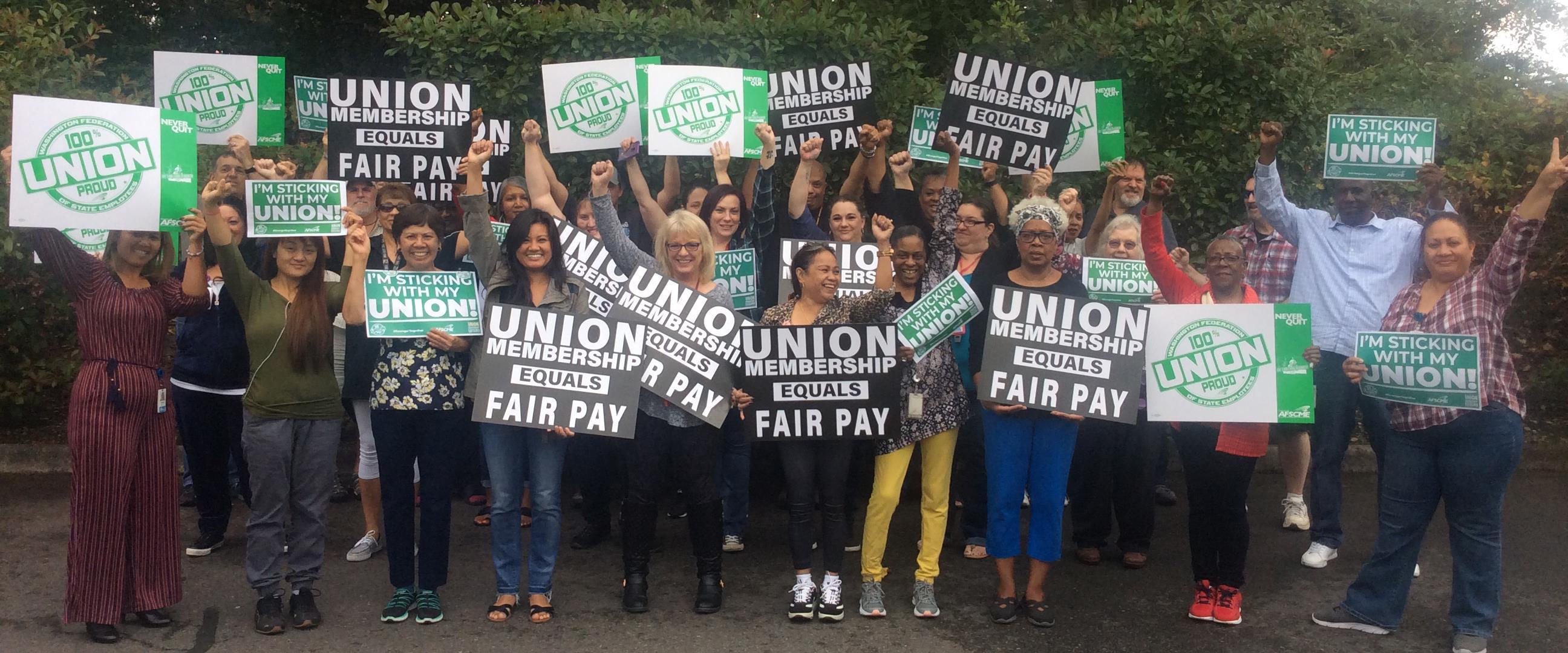Last week, AFSCME Council 28 (WFSE) welcomed some of the newest behavioral health providers to join the union and gain a voice for their clients and themselves. A dozen Mental Health Practitioner Leads and Mental Health Practitioner Clinical Specialists at the Harborview Medical Center joined AFSCME to tackle the issues of discrimination, safety and fair pay.
They join the rising tide of AFSCME’s United We Heal campaign, elevating the voices and needs of the workers who are striving to modernize a behavioral health system that has not kept up with today’s needs.
"I joined the union because behavioral health employees carry the incredible physical and emotional burdens of people suffering in our society,” said Garrett Hebel. “We deserve a say to make our work lives better, so we can show up for our clients.”
Hebel and his coworkers support some of the most vulnerable members of our communities, and they say the union will give them a chance to do their jobs to the best of their abilities.
“I am joining the union to advocate for wages that can provide a good standard of living, quality healthcare, and safe working conditions so we can do our jobs,” he explained.
Rena Elkins has been a mental health and substance abuse counselor for almost 20 years.
“I love doing what I do,” she said. “To help people who are marginalized and stigmatized, to help people to succeed and work through their problems, is just so rewarding.”
Elkins said she and her coworkers have faced issues with safety and harassment at work.
“Most people with mental illness or drug addiction are grateful to have help and are cooperative, but there are a few people who are unstable and may be a risk until they get the help they need,” she said.
She joined AFSCME, the union for behavioral health workers, to have a channel for advocacy and collective action.
“I want to be part of a larger group that will support each other in order to protect our job security, wages, pension and rights,” she said.
Behavioral health workers face real challenges in their mission to empower and heal. Inadequate access to medically-necessary treatment is just one piece of the problem while increases in funding haven’t translated into improvements in care. Frequent burnout leads to inconsistent care, wasted resources and poor results. The quality of the care delivered and the ability of providers to maintain an appropriate caseload are also important factors. Workplace safety and the high cost of education to quality for low-paying jobs contribute to a system where the providers find more reasons to leave than reasons to stay.
Elkins is ready to speak up on behalf of workers like her and the patients they serve.
“As a group of people, we’re stronger than we are individually, and if we recognize that something is important for us moving forward, whether it’s pay, safety or benefits, we certainly will have a lot more power to accomplish that,” she said.

